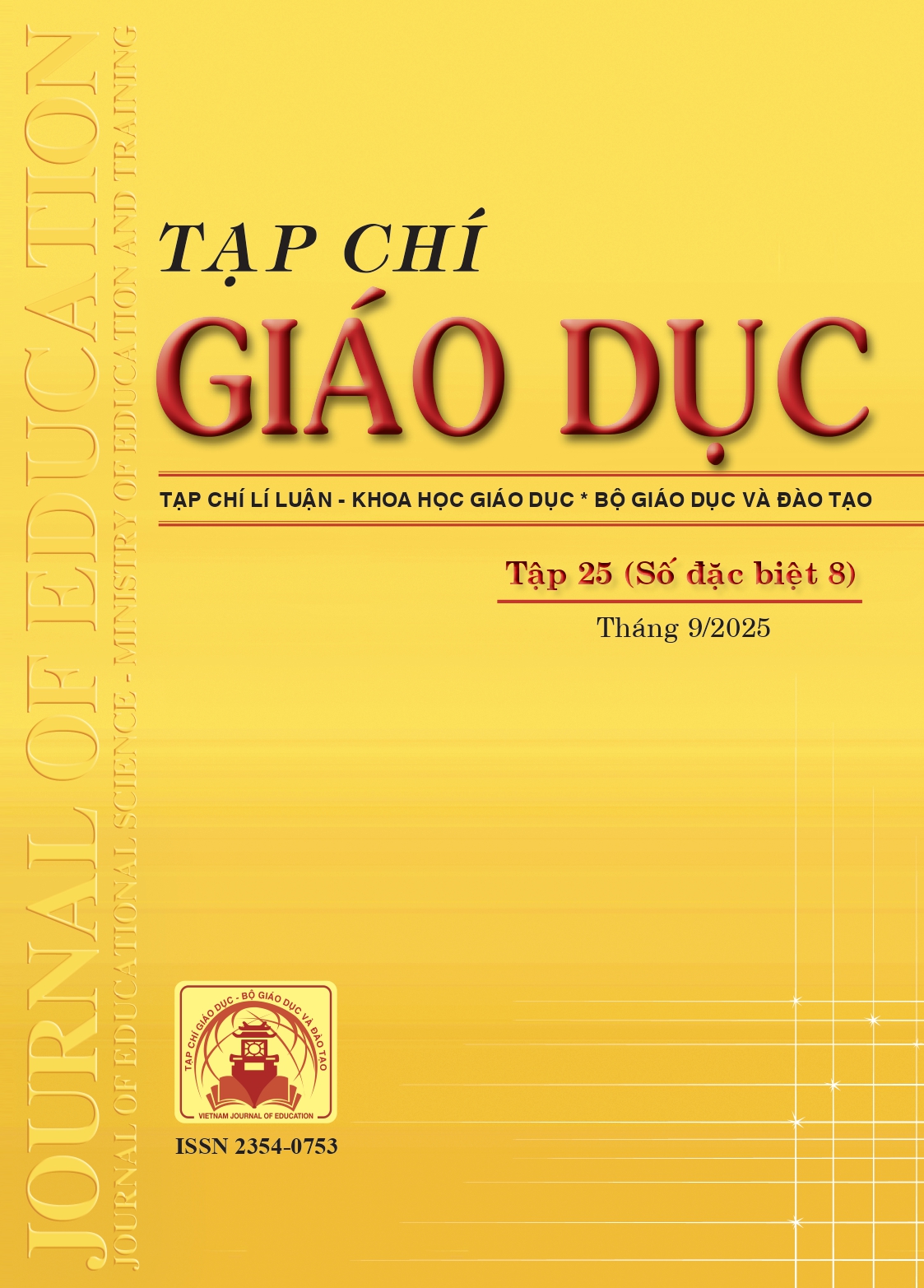Tiếp cận hỗ trợ tài chính dành cho giáo dục đại học của hộ gia đình tại tỉnh Cà Mau: Thực trạng và một số đề xuất
Tóm tắt
In the context of higher education playing a key role in the sustainable development strategy of local human resources, financial accessibility becomes a key factor affecting learning opportunities and educational equality. This article examines the current situation of access to financial support for higher education among households in Ca Mau province, within the framework of a cooperation program between Ho Chi Minh City National University and the southern provinces, aiming to promote the role of universities in serving the community through research and policy advice. Based on a survey of household spending capacity and local human resource recruitment needs, the article identifies barriers to accessing financial support sources. It proposes solutions to improve policy effectiveness, expand learning opportunities, and contribute to the development of high-quality human resources for Ca Mau province. The research results offer valuable policy implications for localities with similar conditions, particularly in the context of higher education development and regional socio-economic development strategies.
Tài liệu tham khảo
Addai, I. (2022). A contribution to the determinants of annual household education expenditure in Ghana. Social Sciences & Humanities Open, 6(1), 100349. https://doi.org/10.1016/j.ssaho.2022.100349
Askarov, Z., & Doucouliagos, H. (2020). A Meta-analysis of the Effects of Remittances on Household Education Expenditure. World Development, 129, 104860. https://doi.org/10.1016/j.worlddev.2019.104860
Becker, G. S. (1964). Human Capital: A Theoretical and Empirical Analysis, with Special Reference to Education. National Bureau of Economic Research.
Bourdieu, P., Passeron, J. C., & Nice, R. (1977). Education, society and culture. Trans. Richard Nice. London: SAGE Publications, 15-29.
Hauptman, A. M. (2008). Higher education finance: Trends and issues. In Springer eBooks (pp. 83-106). https://doi.org/10.1007/978-1-4020-4012-2_6
Hoang, T. N. (2020). The model analyse the factors affecting Vietnamese household expenditure on education. Journal of International Economics and Management, 112, 54-72.
Lê Ngọc Hùng (2019). Tự chủ đại học: Khái niệm và chính sách giáo dục ở Việt Nam. https://www.tapchicongsan.org.vn/web/guest/nghien-cu/-/2018/54388/tu-chu-dai-hoc--khai-niem-va-chinhsach-giao-duc-o-viet-nam.aspx/
Lưu Thị Thuỳ Hương (2024). Sự hài lòng về công việc của giảng viên trong bối cảnh tự chủ tài chính của một số trường đại học khối kinh tế trên địa bàn thành phố Hà Nội. Tạp chí Giáo dục, 24(21), 54-59.
Mincer, J. A. (1974). Schooling, Experience, and Earnings. National Bureau of Economic Research.
Patrinos, H. A., Thang, P. V., & Thanh, N. D. (2018). The Economic Case for Education in Vietnam. World Bank Policy Research Working Paper.
Tilak, J. B. G. (2021). Students’ perspectives on quality of engineering education in India. Journal of Applied Learning & Teaching, 4(1), 56-71. https://doi.org/10.37074/jalt.2021.4.1.15
Văn phòng UBND tỉnh Cà Mau (2024). Báo cáo thực hiện Nghị quyết 34/NQ-HĐND tỉnh về Kế hoạch phát triển kinh tế - xã hội năm 2024 và phương hướng nhiệm vụ năm 2025.
Võ Hồng Đức (2019). Bất bình đẳng chi tiêu công cho giáo dục và thu nhập tại Việt Nam. Tạp chí Kinh tế và Phát triển, Đại học Kinh tế Quốc dân, 272, 2-12.
Vu, Q. H. (2012). Determinants of educational expenditure in Vietnam. International Journal of Applied Economics, 9(1), 59-72.
World Bank (2017). Vietnam Public Expenditure Review (Vol. 2): Fiscal Policies towards Sustainability, Efficiency, and Equity. Washington, D.C.: World Bank Group.
Đã Xuất bản
Cách trích dẫn
Số
Chuyên mục
Giấy phép

Tác phẩm này được cấp phép theo Ghi nhận tác giả của Creative Commons Giấy phép quốc tế 4.0 .












